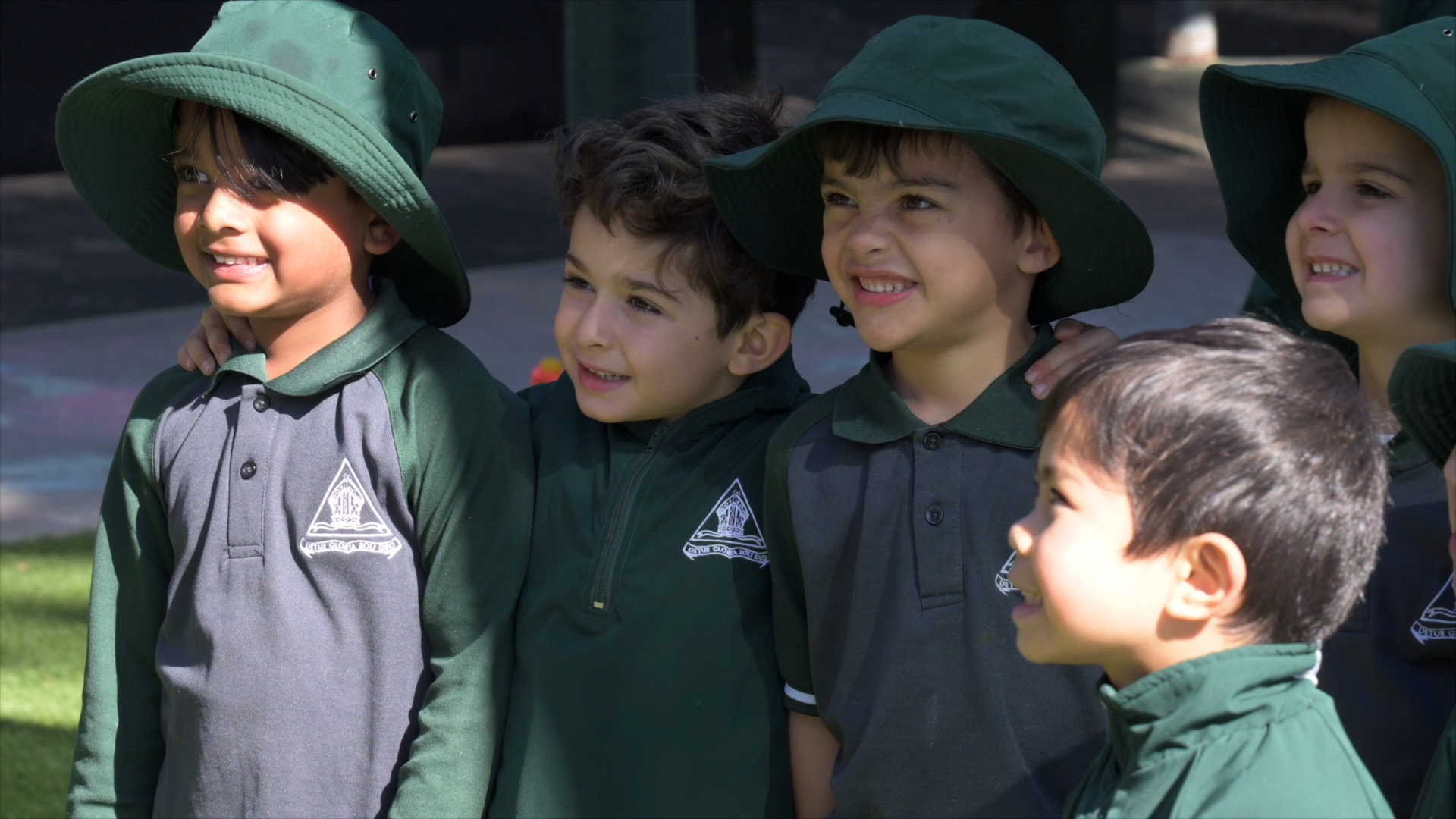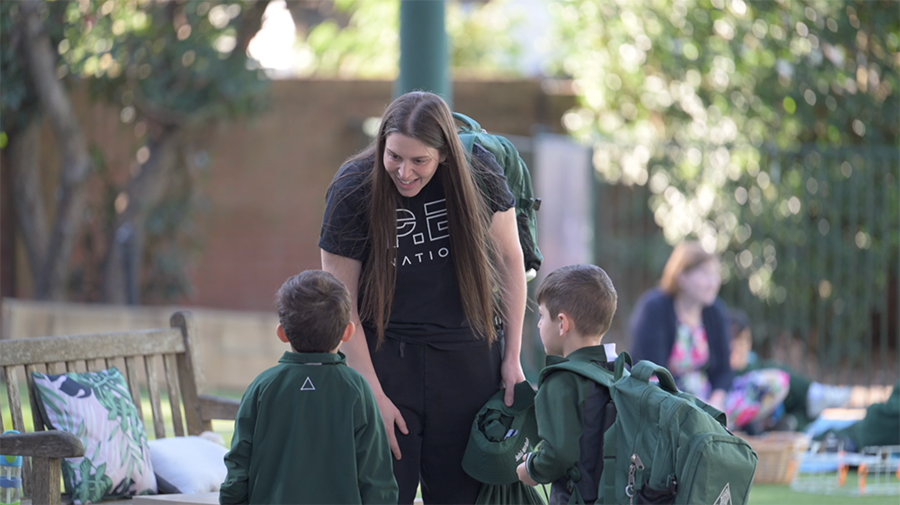The Trinity Pre-Kindergarten Philosophy
At Trinity we believe that young learners are unique, capable, knowledgeable, curious and competent with a strong desire to connect with others.
Pre-Kindergarten is not merely preparation for Kindergarten, rather it supports children in developing a deep love of learning, learning about themselves, exploring their natural wonderings within a stimulating environment.
Trinity Preparatory is an International Baccalaureate (IB) Primary Years Programme (PYP) School. Our PreK students are active participants in their learning as they journey towards Kindergarten. Our programme:
Watch our Pre-K videos
Day in the life of Pre-K
Our Pre-K Philosophy
Pre-K Parents - Why we love Pre-K
Frequently asked questions
The importance of play cannot be understated when it comes to the skills development of children. However, it’s important to understand the type of play that can take place in a school setting is different to that which might take place in a stand-alone early childhood education setting.
An example from Trinity Grammar School’s Pre-K programme is how it feeds into the School’s K-6 International Baccalaureate Primary Years Programme (PYP) which starts from age 3.
Play is very much integrated because the IB’s inquiry framework for the PYP has a direct correlation with play. Our teachers specifically plan for and scaffold play into each teaching and learning unit because we recognise that play is how a child naturally learns. If we enhance and empower a child’s natural inclination and intrinsic ability for play, they can learn a lot more than if it is a teacher-led directive. Early learners in our context are active learners, rather than passive vessels waiting to be filled.
Play is a process through which the child inquires, asks questions and learns – with the emphasis being on the process rather than the final product. Play is a co-constructed concept with the child. The play that children access at Trinity allows them to be curious and ask questions that go beyond single subject limitations and an adult’s preconceived idea of play.
The definition of child-led in an early-childhood setting is widely misunderstood. It doesn’t mean that the teacher is completely hands off. A better phrase is ‘child responsive’ teaching. Teacher direction is in response to what is happening in the classroom with the students. Our teaching units ebb and flow based on each teacher’s reflections, and the response and needs of the boys – rather than being static.
We plan and provoke; we guide and provide opportunities for rich play and each child’s development; the boys at Trinity have an active role in what that looks like for them.
Play is a very serious, research-based choice that Trinity has made for its Early Years Programme in its school-based setting.
Play is a very serious, research-based choice that Trinity has made for its Early Years Programme in its school-based setting, and the importance we place upon it is reflected in the qualifications of the people who lead its delivery.
There is extensive science and research into the impact play has upon a child’s brain development and learning outcomes. Consequently, we employ university trained teachers for every class; this is a different ratio to university qualified teachers in a long day care setting.
The National Quality Framework (NQF) sets out the minimum qualification and educator to child ratio requirements for children’s education and care services. In a community long daycare service, this ratio is one Early Childhood teacher to multiple children meaning that most children in the service may never have access to a university qualified teacher. We choose to offer one university qualified teacher per class of 20. This is the level of importance we place upon play as part of child’s development in readiness for Kindergarten.
The Primary Years Programme (PYP) is a curriculum framework designed by the International Baccalaureate Organisation (IBO) for students aged 3 to 12. It focuses on the development of the whole child as an inquirer, both in the classroom and in the world around them. The PYP intertwines beautifully with our Pre-Kindergarten Curriculum. It draws on world class research to create a relevant, engaging, challenging and significant educational framework for all children. Learn more about the PYP Programme here.
Please take the time to watch our ‘Day in the life’ Pre-K video on this page.
As an overview, our Pre-K day has the following structure:
In the morning, boys are dropped off in the Pre-Kindergarten playground by parents / caregivers between 8:30am and 9:00am. This allows time to unpack his school bag for the day ahead, say a happy goodbye and be ready to learn. Parents pick up their son from the playground
between 2:30pm and 2:45pm. Kiss and Ride services are not available to Pre-Kindergarten families.
Morning:
- Arrival (between 8:30 and 9:00am): say goodbye to parents / caregivers and greet teacher
- Unpack bag – we encourage independence when unpacking each day
- Purposeful play in learning spaces
- Morning Meeting – plan our day together, share important information and come together as a learning community
- PreLit: pre-literacy skills focusing on phonological awareness in addition to language development through structured storybook reading
Mid-Morning
- Eat morning tea together
- Time spent engaged in intentional teaching and play experiences both inside and outside.
- Engage with various specialist teachers (depending on the day)
- Health and Wellbeing – engage in a range of Gross Motor activities
Afternoon
- Eat lunch together as a class
- Reflect on our learning, our wonderings and our next steps
- Engage with various specialist teachers (depending on the day)
- Say goodbye to our teachers and friends
- Picked up from the playground between 2:30pm and 2:45pm
Boys have weekly specialist lessons for: Art, Physical Education, STEAM, Music, Christian Studies and Mandarin. They also visit the Library.










